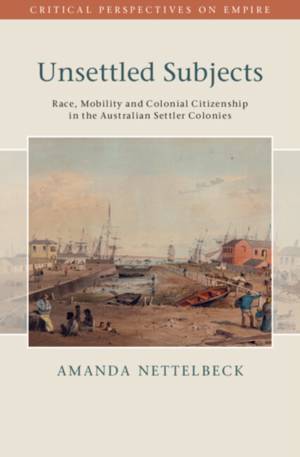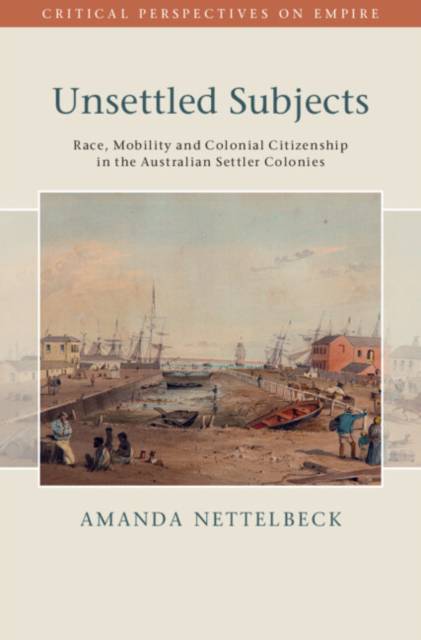
- Afhalen na 1 uur in een winkel met voorraad
- Gratis thuislevering in België vanaf € 30
- Ruim aanbod met 7 miljoen producten
- Afhalen na 1 uur in een winkel met voorraad
- Gratis thuislevering in België vanaf € 30
- Ruim aanbod met 7 miljoen producten
Zoeken
Unsettled Subjects
Race, Mobility and Colonial Citizenship in the Australian Settler Colonies
Amanda Nettelbeck
€ 187,45
+ 374 punten
Omschrijving
Lying between the Indian and Pacific Oceans, Australia served as a crossroads for trade and migration across the British Empire. Australia's settler colonies were not only subject to British immigration but were also the destination of emigration from Asia and 'Asia Minor' on terms of both permanent settlement and fixed indenture. Amanda Nettelbeck argues that these unique patterns shaped nineteenth-century debates about the relationship of the settler colonies to a porous empire. She explores how intersecting concerns around race and mobility - two of the most enduring concerns of nineteenth-century governance - changed the terms of British subjecthood and informed the possibilities of imagined colonial citizenship. European mobility may have fuelled the invasive spread of settler colonialism and its notion of transposed 'Britishness', but non-European forms of mobility also influenced the terms on which new colonial identities could be made.
Specificaties
Betrokkenen
- Auteur(s):
- Uitgeverij:
Inhoud
- Aantal bladzijden:
- 232
- Taal:
- Engels
- Reeks:
Eigenschappen
- Productcode (EAN):
- 9781009489430
- Verschijningsdatum:
- 20/11/2025
- Uitvoering:
- Hardcover
- Formaat:
- Genaaid
- Afmetingen:
- 152 mm x 229 mm
- Gewicht:
- 480 g

Alleen bij Standaard Boekhandel
+ 374 punten op je klantenkaart van Standaard Boekhandel
Beoordelingen
We publiceren alleen reviews die voldoen aan de voorwaarden voor reviews. Bekijk onze voorwaarden voor reviews.







